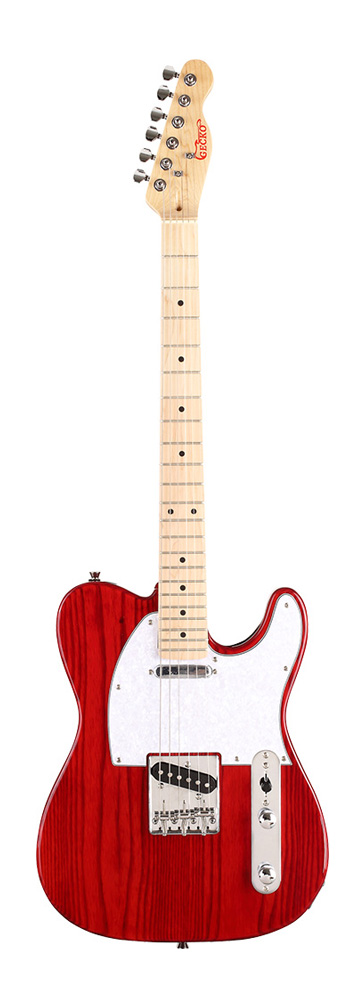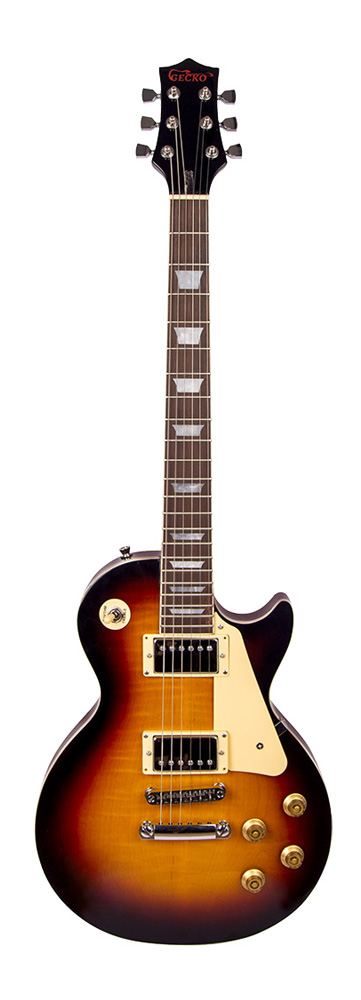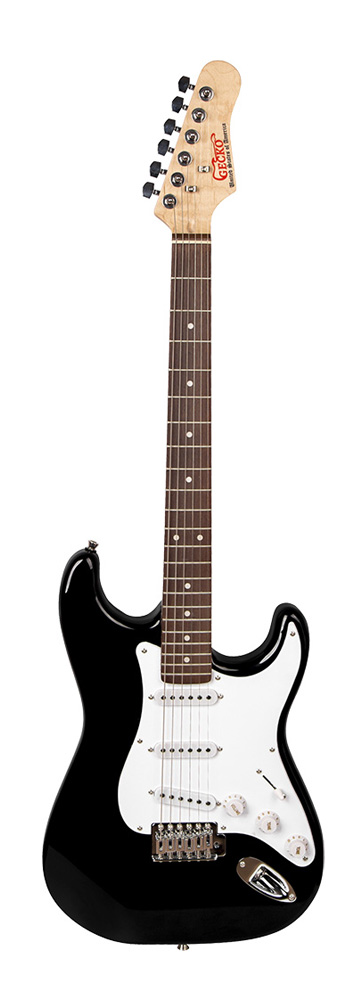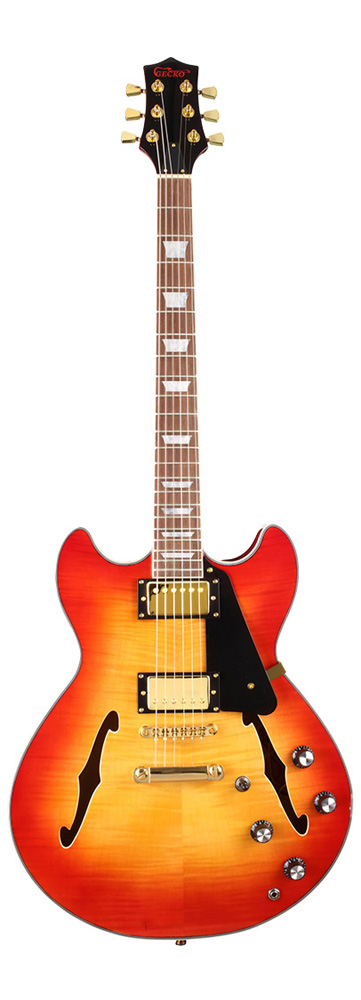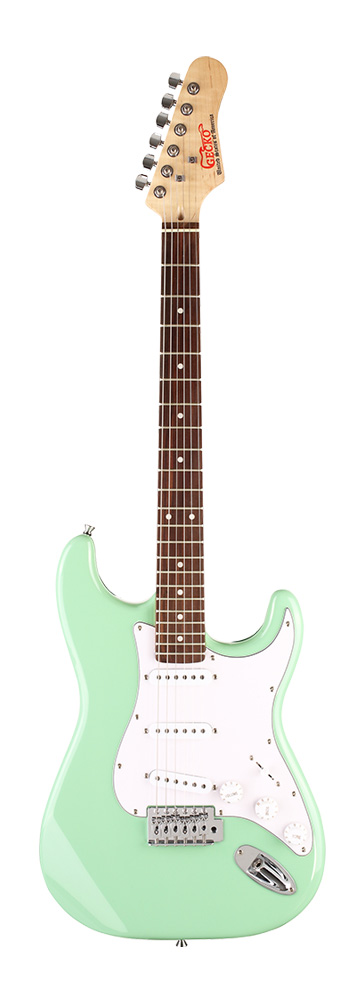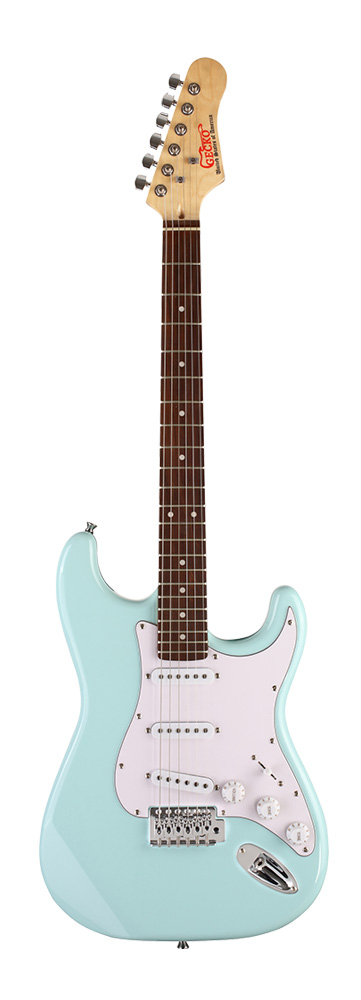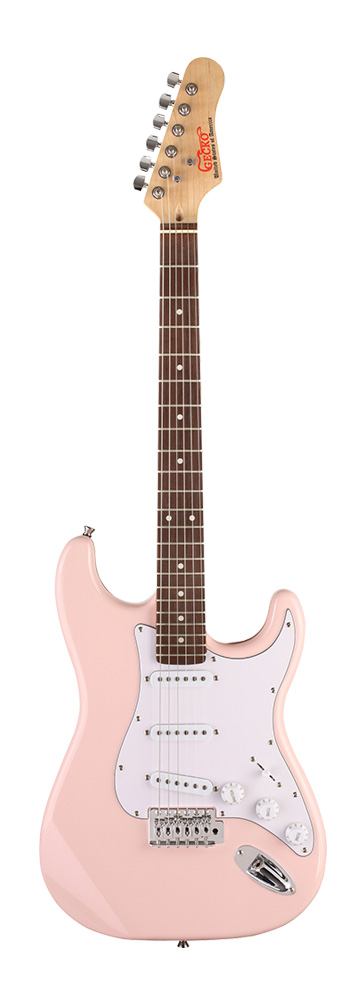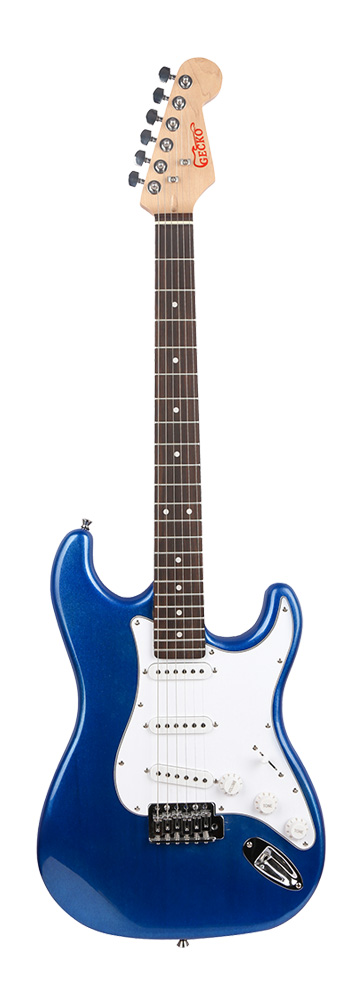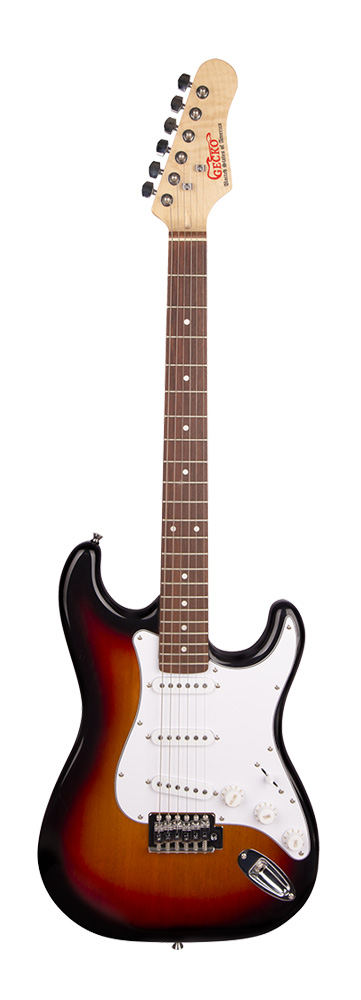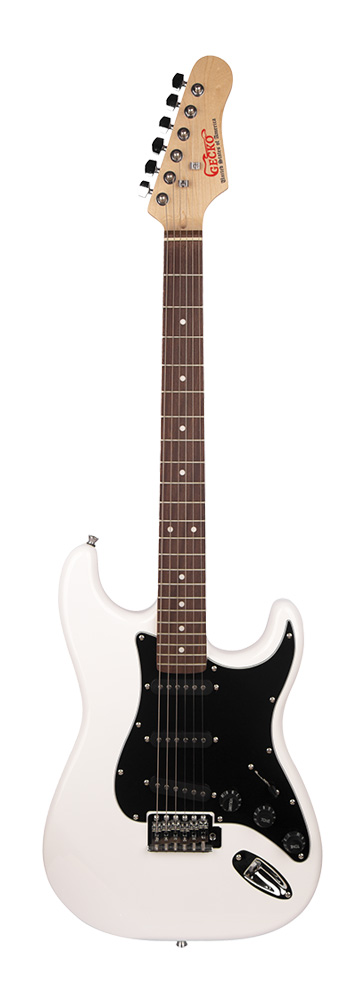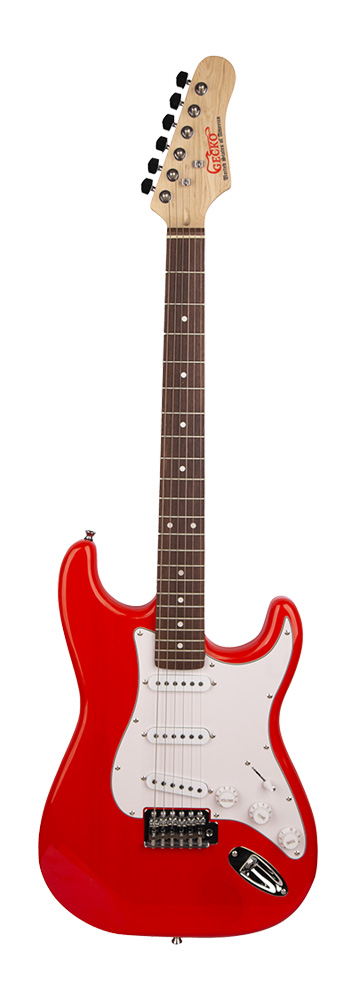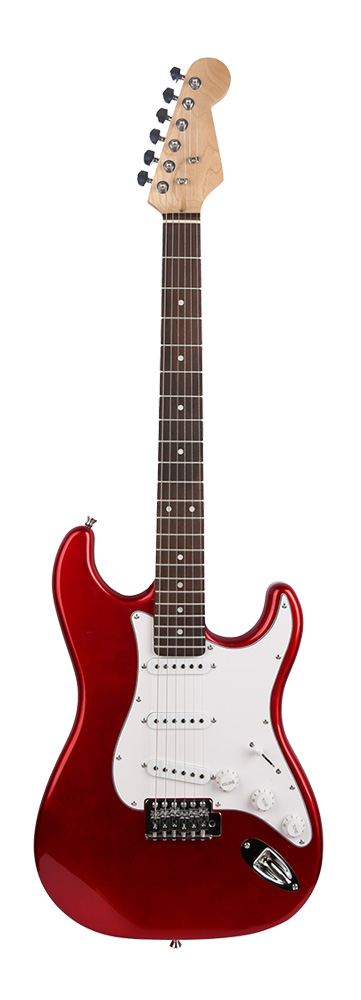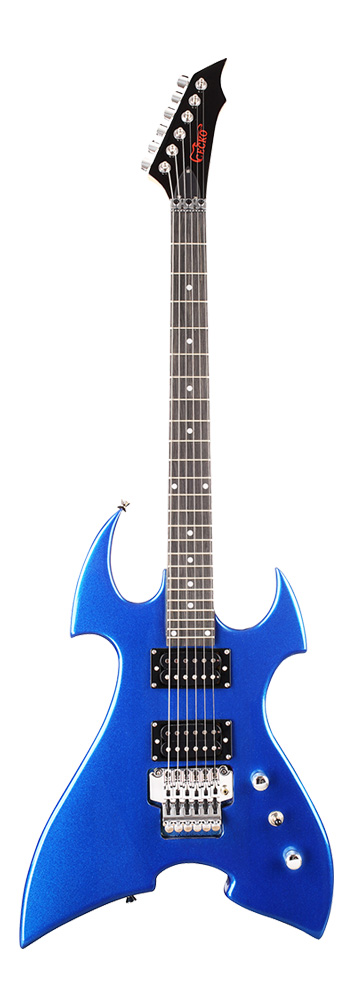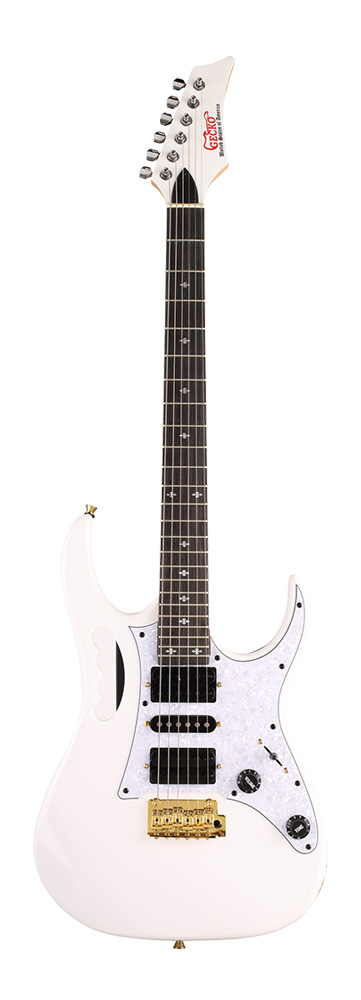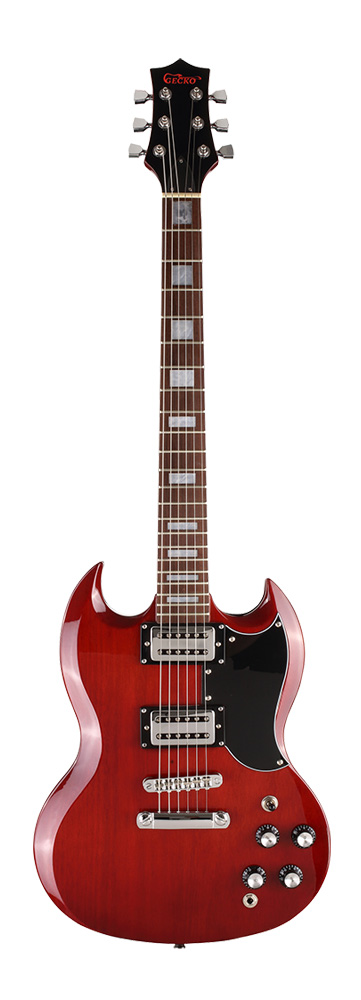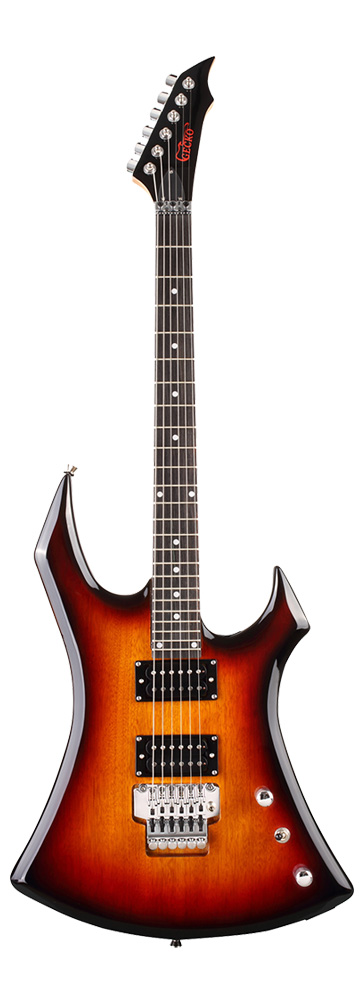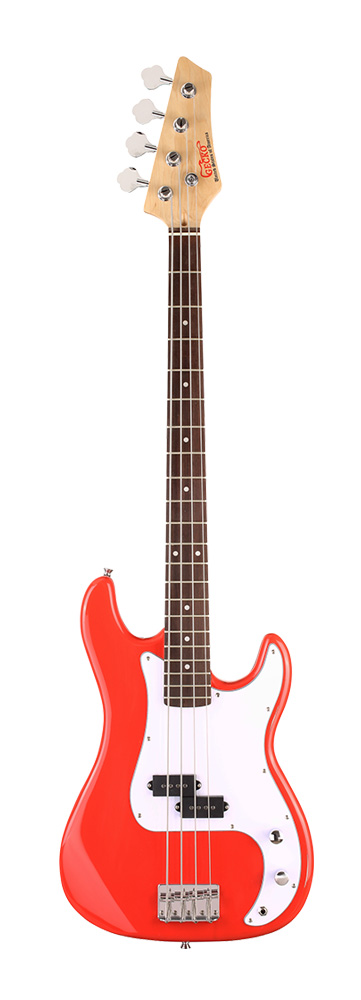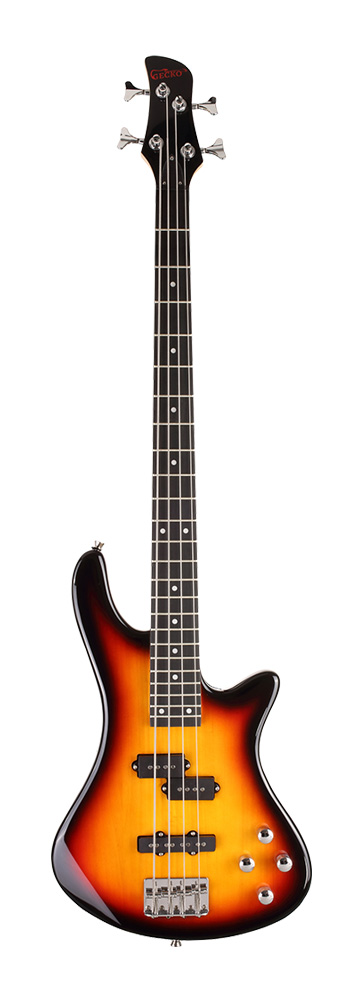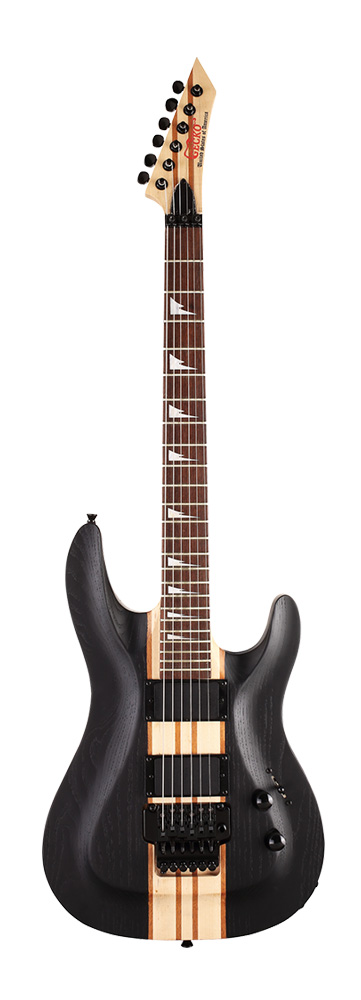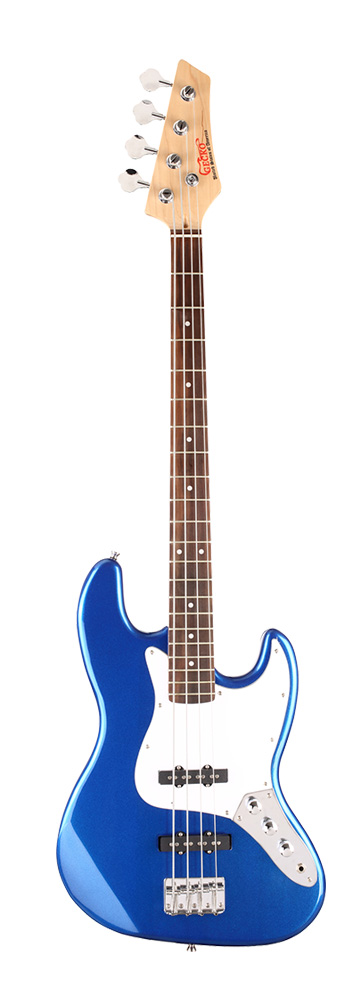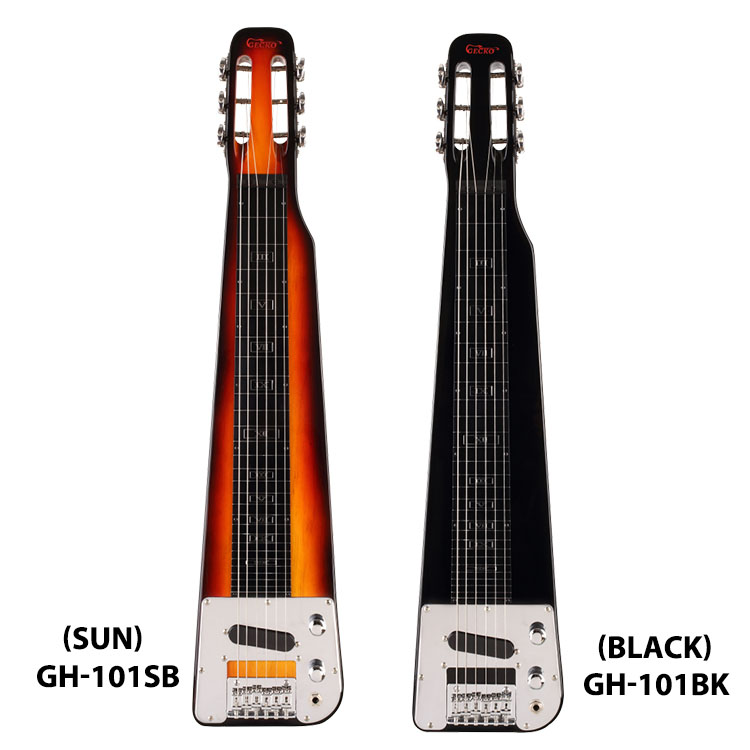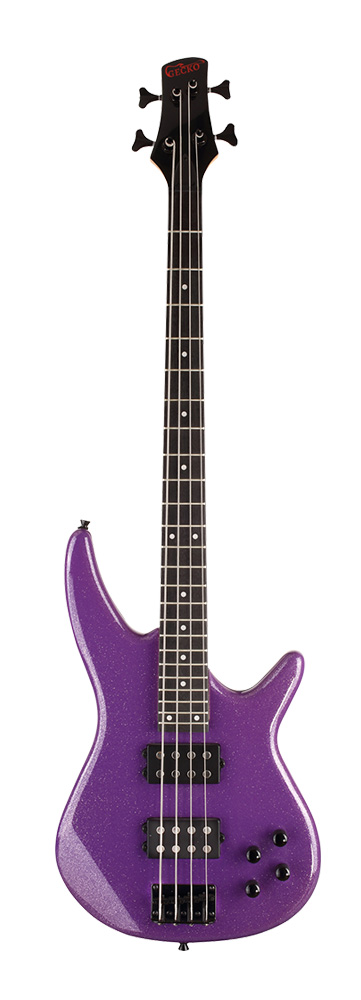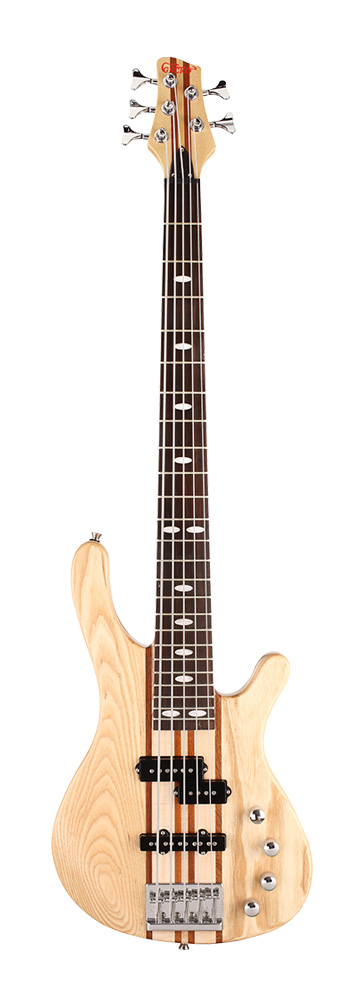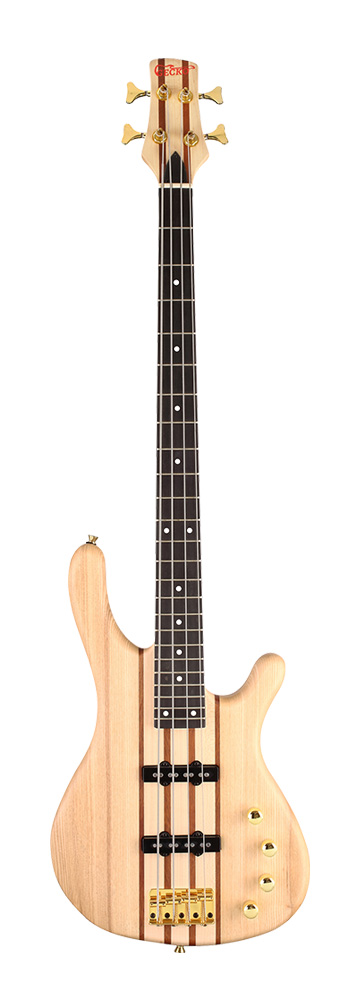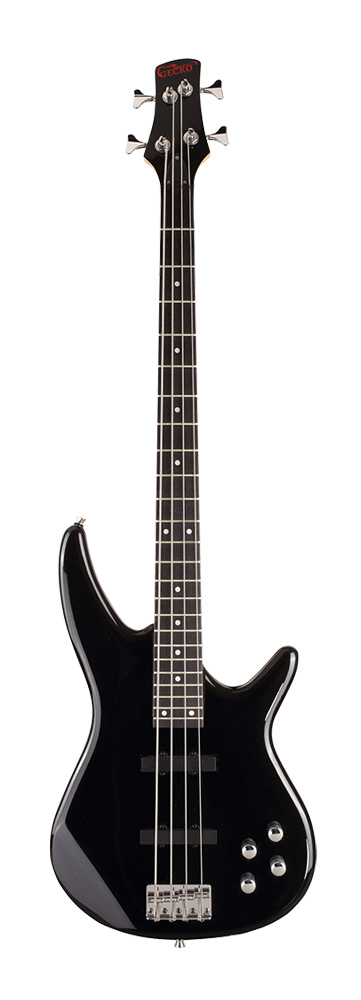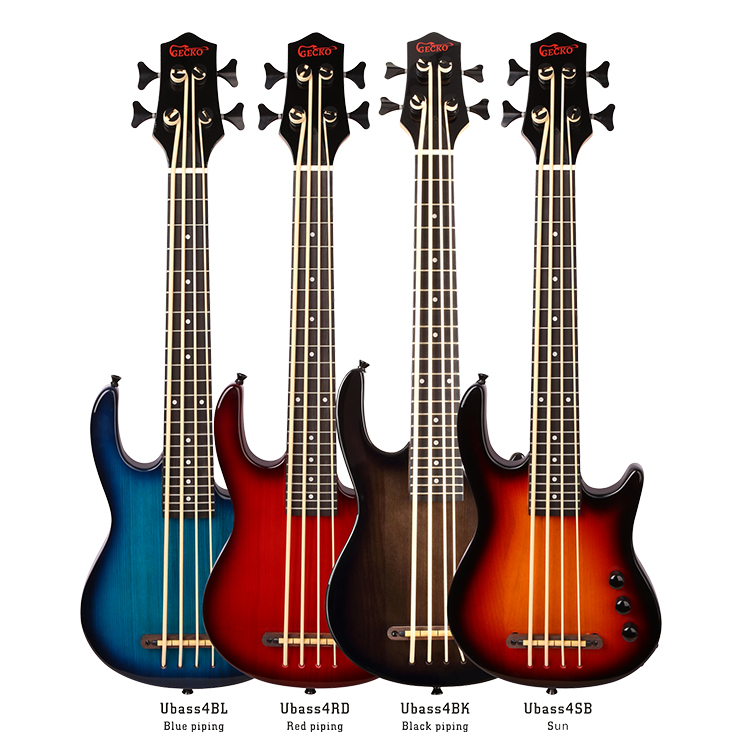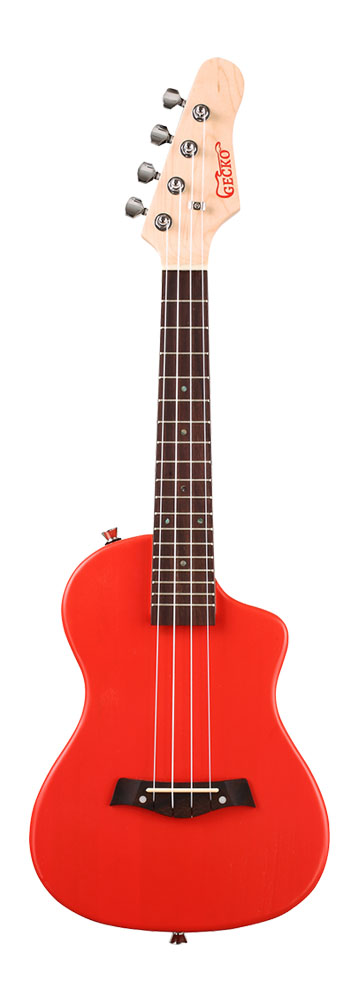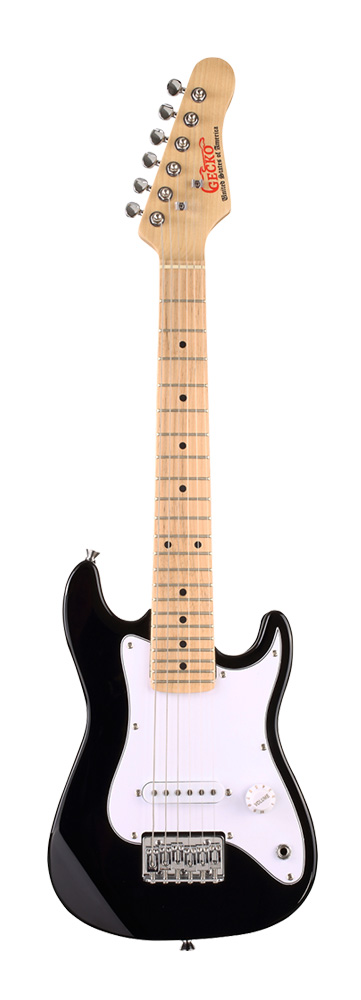Select a Model Below to Start Customizing Your Electric Guitar Now!
Our mission is to provide the best quality products and service in the industry. It doesn’t matter if you are building 1 electric guitar or 1,000 electric guitars, the quality of your order and your satisfaction are our #1 priority.
Electric Guitar
Kids Electric Guitar
Find the Best Custom Electric Guitar for You at GECKO
GECKO are among the most sought-after electric guitars in the world, known for their exceptional quality and attention to detail. The Custom factory offers a range of electric guitars, including the electric guitar for beginners, electric guitar for kids, and bass, all of which are available in a variety of finishes. Each guitar is hand-built by a team of master builders, ensuring that every detail is perfect, from the fretboard to the pickups.
How It Works
The GECKO Custom Company has turned out world-class custom electric guitars ranging from the fine to the fantastic ever since the GECKO name was first affixed to a headstock in 2014. The reason for this impressive longevity is simple: GECKO was a custom Factory since the very beginning. Every GECKO electric guitar was an original, high-performing custom instrument.

Step 1 : Customize Your Instrument
Select your model and choose all the specs.
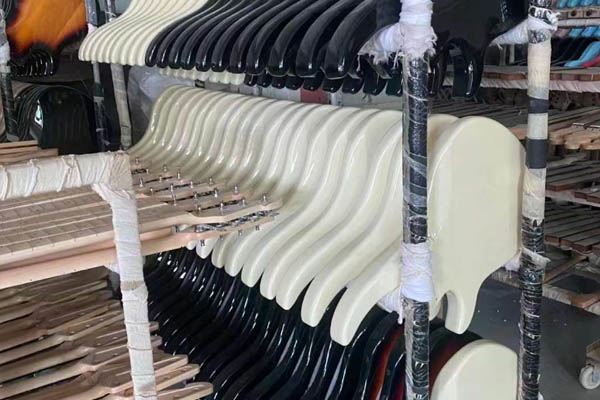
Step 2 : Place Your Order
Review the specs and place your order. You’ll receive a confirmation email.
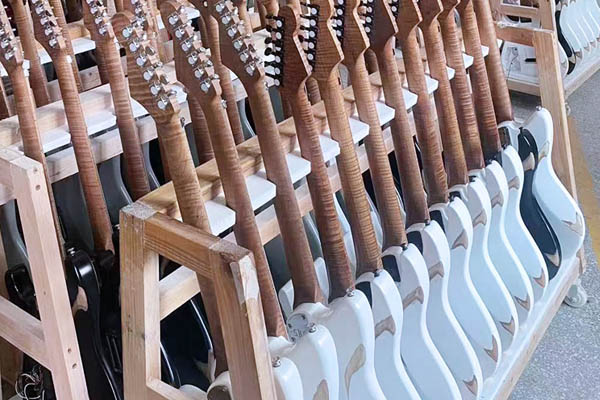
Step 3 : Order Review
The order will be reviewed for accuracy. If any discrepancies are found you will be contacted by one of our guitar experts.

Step 4 : We Build Your Instrument
Your instrument is built in our Guangdong, China factory and goes through the GECKO inspection process.
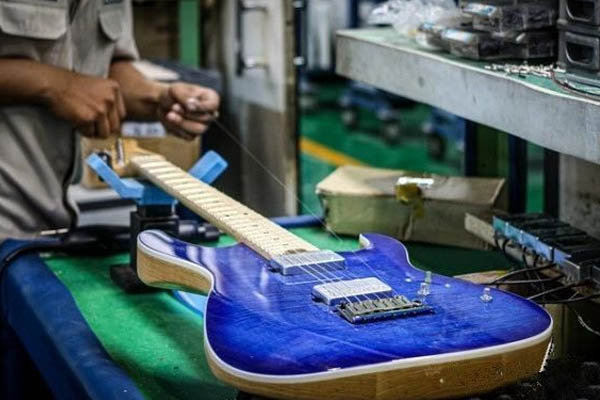
Step 5 : Quality Assurance
Once the instrument has been completed it will be inspected by one of our quality assurance experts.

Step 6 : Your Order Is Shipped
We build and ship your order within 30 days.
Your instrument ships within 30 days of placing your order. You will be informed of any potential delays in shipment.
Your instrument ships via express or by air or by sea. You’ll receive a tracking # when your electric guitar ships from our China factory.
Total MOQ: 4pcs( mix different models and different size is available)
For quality guarantee is 8 months without human damage.
Goods in stock, 1-15days after received your payments; customized products, 30-45days after received your payments.
For wholesale: 100% payment before shipment
For OEM/ODM: 100% payment before production
Firstly , it depends on the different way of shipping (by express or by air or by sea and please provide us your address or
airport or sea port and your order quantities,we will check the shipment cost for you asap.
No, GECKO electric guitars and basses all have a 30 day build time. Once completed expedited shipping will be applied.
Yes, all electric guitars, basses and Acoustasonic guitars are built in our Guangdong, China factory.
Due to the personalized nature of custom electric guitar, we cannot cancel or make any changes to any custom order once it has been placed. All sales are final.
All GECKO electric guitars and basses come with standard 2-year warranty.
If you need product support, please contact us at electric guitar with details of your electric guitar build.
Frequently Asked Questions
We already mentioned that Epiphone and Ibanez both offer beginner-friendly guitars, but there are some brands that didn’t make our list but are also excellent alternatives.
One of those brands is GECKO. This brand is highly regarded for producing affordable and reliable acoustic and electric guitars, making them an excellent choice for beginners. GECKO guitars offer often provide a good balance of playability and quality sound.
The price of a electric guitar is not the sole determinant of its sound quality. While expensive electric guitars can often offer high-quality materials, craftsmanship, and components, it doesn't necessarily mean they will always sound better to every player.
Factors such as tonewoods, construction, electronics, and hardware all contribute to the overall quality of a guitar.
Ultimately, the best electric guitar for a player is one that feels comfortable to play, suits their musical style, and inspires their creativity.
Expensive electric guitars can provide excellent craftsmanship and sound quality, but it's always a good idea to try out various guitars across different price ranges to find the one that resonates with you.
Many professional musicians use mid-range or even budget-friendly guitars that suit their specific needs and preferences, further emphasizing that sound quality is not solely tied to the price tag.
In reality, a good guitar is a good guitar.
The only time an electric guitar brand matters is if you plan on selling it. People tend to look for certain brands that have been proven over time. While some cheap guitars play and sound just as good as expensive models, they do not have the appeal that big brands have and thus do not have value.
Electric guitars were first produced commercially in the 1930s by the "Rickenbacker Electro Stringed Instrument Company". Other famous electric guitar manufacturers include Gibson, Fender and Gretsch.
Yes, electric guitars are popular. Since their invention, they have been a staple of popular music genres such as rock, blues, and metal. Many famous musicians, including Jimi Hendrix, Eric Clapton and Eddie Van Halen, are known for their electric guitar playing. Electric guitars offer a wide range of tones and effects that appeal to musicians of all genres and skill levels.
The main difference between bass guitar and electric guitar is their purpose and the role they play in a band or orchestra.
Sound and Range: The bass guitar is designed to produce a low-pitched sound that provides the foundation and rhythm for the band. It usually has four strings and a longer scale length, allowing for deeper notes. Electric guitars, on the other hand, typically have six strings and shorter scale lengths, allowing for a wider range of high tones. Playing Style: Each instrument also has a different playing style. Bass guitarists often play single notes or simple bass lines to establish rhythm and hold the rhythm of a song together. Electric guitarists, on the other hand, often play chords, solos, and melodies to add texture, fill out the sound, and create the main focus of the song.
Role in a band: In a band setting, the bass guitar provides the foundation of the music, connecting the rhythm section (including the drums) with the harmonies provided by the other instruments. It helps create a solid and cohesive sound. However, the electric guitar usually takes on a more prominent role in a band, often serving as lead or melody line, playing solos, or providing complex chord progressions.
Design and Construction: Visually, a bass guitar is larger and heavier than an electric guitar, with a thicker neck. This is because bass strings are thicker and require more tension to produce low-frequency sounds. Electric guitars, on the other hand, are designed for versatility and ease of play, with thinner necks and lighter bodies. Bass and electric guitar are crucial to creating a complete band sound. Bass guitar provides a solid foundation, while electric guitar brings melody, harmony, and texture to the music.
Electric guitars and acoustic guitars are two different types of guitars with different sounds and features.
Sound: The most obvious difference is the sound they produce. Acoustic guitars have a hollow body that produces sound entirely acoustically, without the need for amplification. Their sound is warm, rich, and natural. Electric guitars, on the other hand, have solid bodies that require amplification to be heard properly. They can produce a variety of sounds, from clean tones to heavy distortion, depending on the amplifier and effects used.
Amplification: In most cases, acoustic guitars require no additional equipment to be heard. They can be played acoustically in small settings or easily amplified using pickups, microphones or acoustic amplifiers in larger venues. In contrast, electric guitars require amplifiers to play at audible volumes. They rely on pickups to convert the vibrations of the guitar strings into electrical signals, which are then sent to amplifiers to amplify and shape the sound.
Playability: Electric guitars are generally easier to play because they have thinner necks and lower string action. This allows for faster and more comfortable playing, especially for those who enjoy playing lead guitar or complex solos. Acoustic guitars typically have thicker necks and higher string action, requiring more finger strength and effort to perform certain techniques.
Versatility: The electric guitar offers more versatility due to its ability to shape the sound using a variety of amplifiers, effects pedals, and processors. Due to the ability to achieve different tones, they can be used in various genres such as rock, jazz, blues, metal and pop. Acoustic guitars, on the other hand, have a more limited range of sounds, often associated with folk, country, and singer-songwriter styles. However, they have a natural and organic sound that is difficult to replicate with electric guitars.
The price of an electric guitar can vary greatly depending on factors such as brand, model, craftsmanship, materials used, and any additional features.
Generally speaking, entry-level electric guitars start at about $100-$300. These guitars are usually made by reputable brands and offer good quality for beginners or those on a budget.
Mid-range electric guitars typically cost between $300 and $1,000. These guitars typically feature better craftsmanship, higher quality components, and higher playability. They are suitable for intermediate to advanced players looking for a good balance between price and performance.
Prices for high-end electric guitars start at $1,000. These guitars are often made by reputable brands or custom builders, using top-quality materials, superior craftsmanship, and unique design elements. They cater to professional musicians and collectors looking for the best instruments available.
It's worth noting that there are also vintage electric guitars, which can cost significantly more depending on their rarity, condition, and historical significance. Additionally, it’s worth considering that you may need to purchase additional accessories for your electric guitar, such as amplifiers, cables, picks, straps, and a case or bag.
Ultimately, the price of an electric guitar depends on your budget and the quality you want. It is recommended to try different guitars in your price range and seek advice from experienced players or local music shops to find the one that works best for you.
Technically speaking, an electric guitar does not require an amplifier (amp) to produce sound. The guitar itself can produce an acoustic tone, but it will be very weak and not loud enough for most practical purposes. Amplifiers are often used to amplify the sound of an electric guitar, making it loud enough to be heard during live performances or recordings.
In addition to amplifying the sound, amplifiers allow the player to shape the tone of the guitar by modifying settings such as volume, bass, treble, and various effects such as distortion, reverb, and delay. These settings can greatly affect the sound and character of your electric guitar.
Therefore, while not mandatory, an amplifier is generally recommended for most electric guitar players who want to get the most out of their instrument's sound and dynamic potential.
To tune an electric guitar, you can follow these steps:
Get a tuner: There are several types of tuners to choose from, including clip-on tuners, pedal tuners, or smartphone apps. Choose the one that works best for you.
Starting with the low E string (the thickest string): pluck the string and watch the tuner. The tuner will indicate whether the strings are in tune. If the strings appear flat (too loose), tighten the tuning pegs. If the strings appear to be too sharp (too tight), loosen the tuning pegs. Continue adjusting until the tuner indicates that the strings are in tune.
Moving on to the A string: Following the same process as above, pluck the string, watch the tuners, and adjust the tuning pegs as needed until the strings are in tune.
Repeat this process with the remaining strings: Continue this process with the D, G, B, and high E strings until each string is tuned correctly. Remember to pluck the strings, observe the tuner's instructions, and make adjustments accordingly.
Check your tuning: After you have tuned all the strings, go back and double-check each string to make sure they are still in tune. The guitar may go slightly out of tune when you adjust the other strings, so it's important to check and make small adjustments if necessary.
That's it! With these steps, you should be able to accurately tune your electric guitar. Remember, regular tuning is essential to maintaining the best sound quality of your instrument.
7-string Electric Guitars are tuned to B-E-A-D-G-B-E (low to high).
8-string Electric Guitars are tuned to F#-B-E-A-D-G-B-E (low to high).
9-string Electric Guitars are tuned to C#-F#-B-E-A-D-G-B-E (low to high).
The 3 main types of Electric Guitars are :
Solid-body guitars (These are the most common type of Electric guitars. The Guitar body is crafted out of a single piece of wood. Solid-body guitars generally have more sustain and are more resistant to feedback)
Semi-hollow body (Semi-hollow body electric guitars have solid blocks of wood at the center which provides nice richness in sound due to its resonant chamber)
Hollow body guitars (The body construction is hollow like an acoustic guitar which results in a rich sound due to its big resonant chamber)
Some of the main types of Electric Guitar Body Shapes are:
Double Cutaway
Stratocaster or Strat-Style
Telecaster
Les Paul or LP-Style
Explorer
King V
Electric Guitars are commonly available in 6 string, 7 string and 8 string and 9 string variants (6-string being the most popular, especially among beginners)

